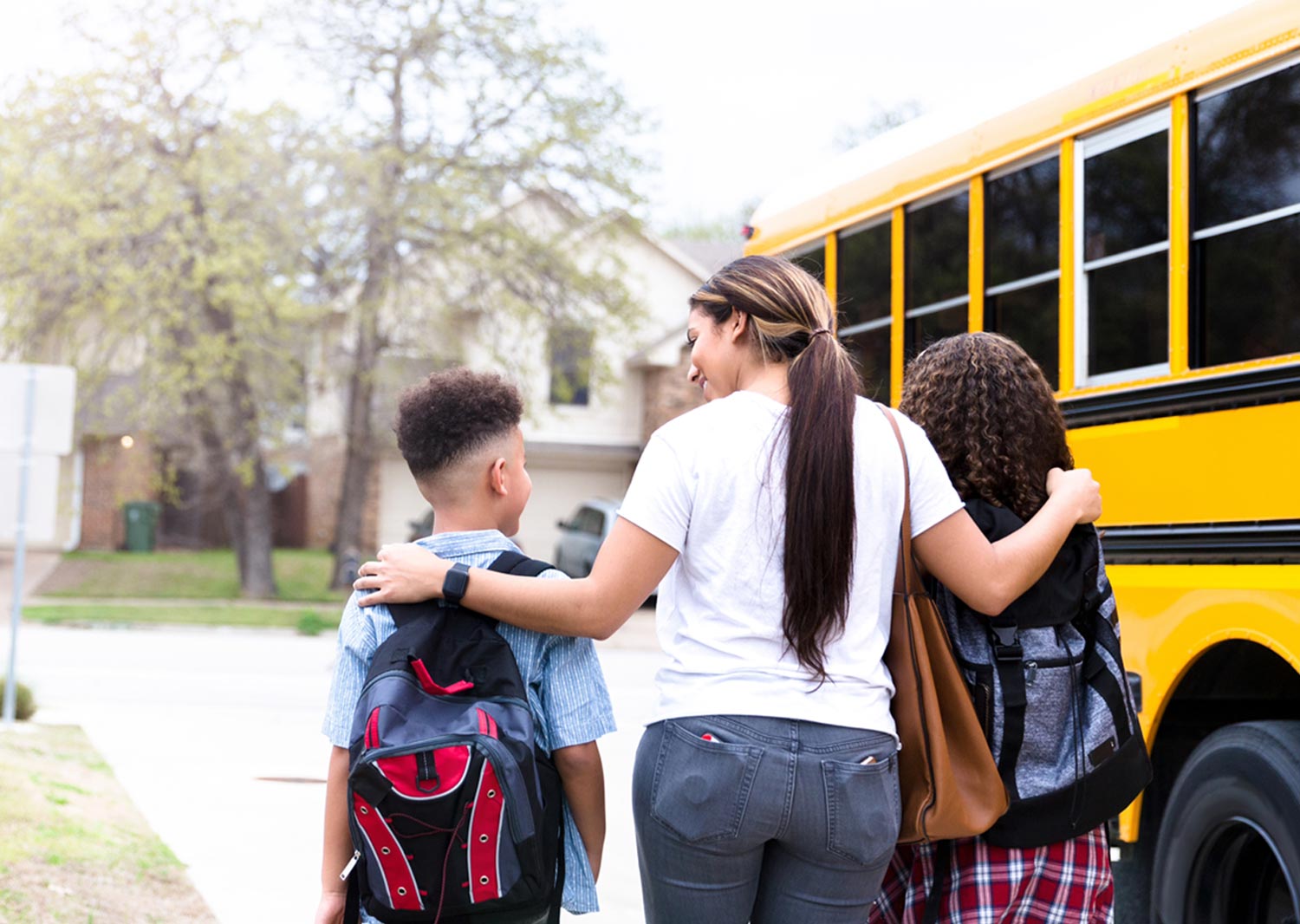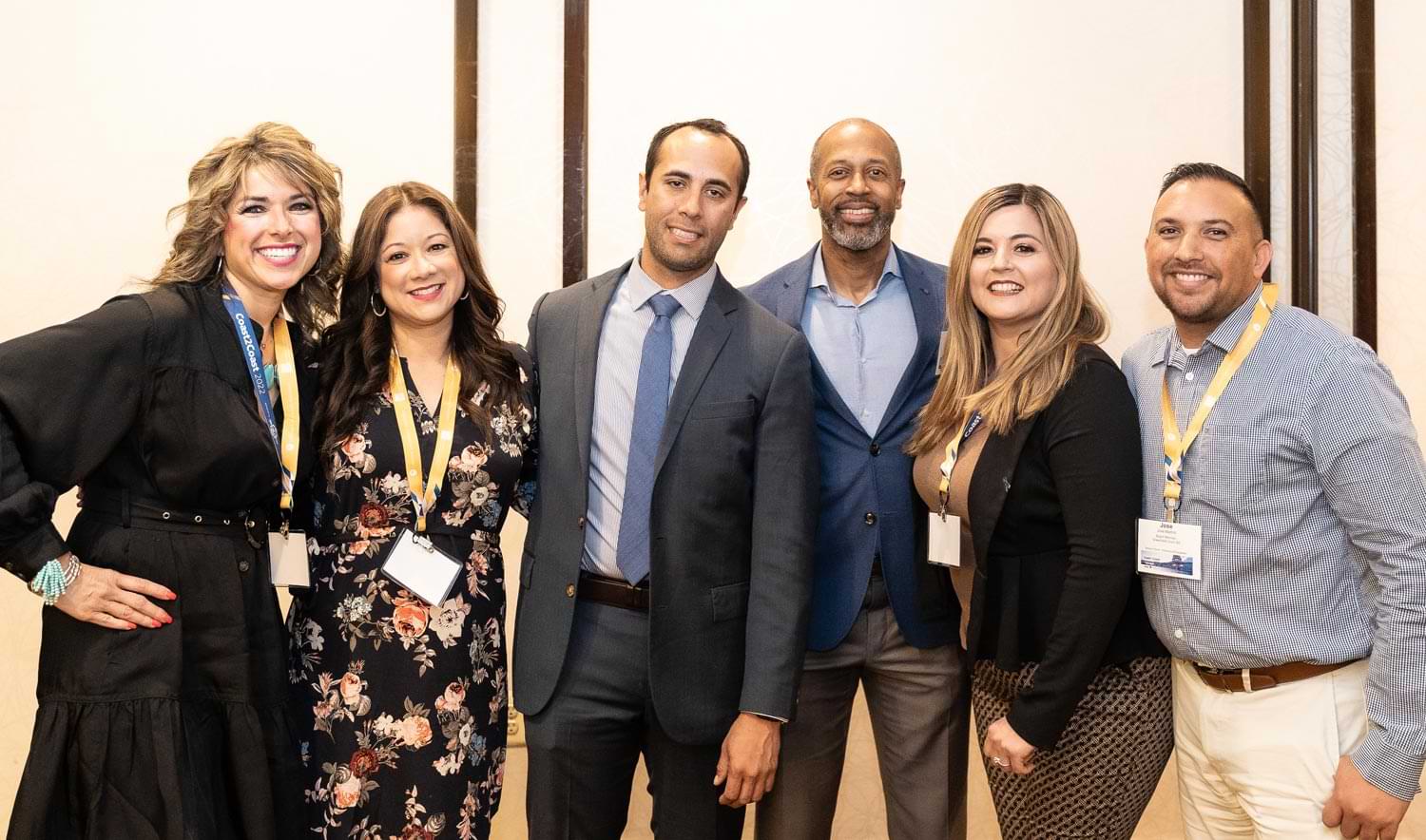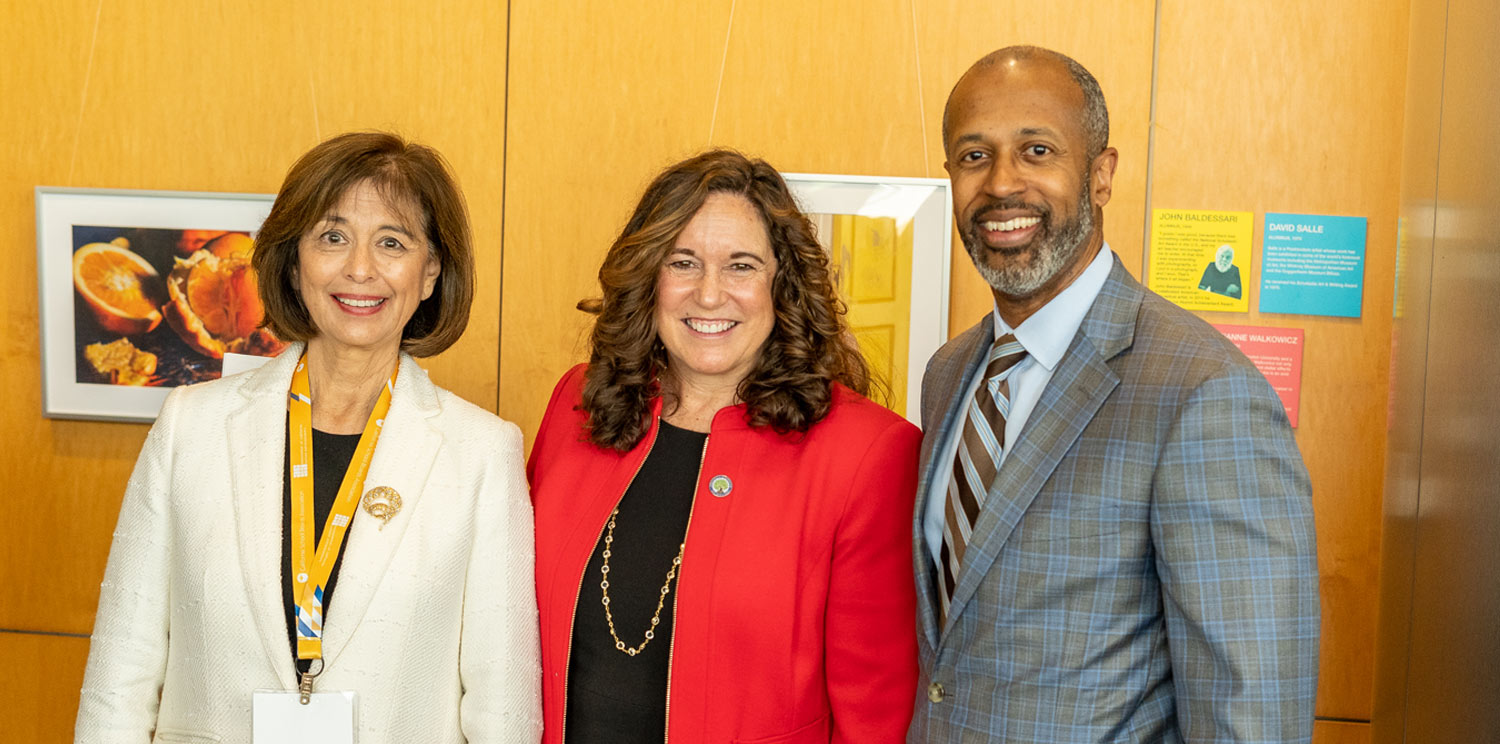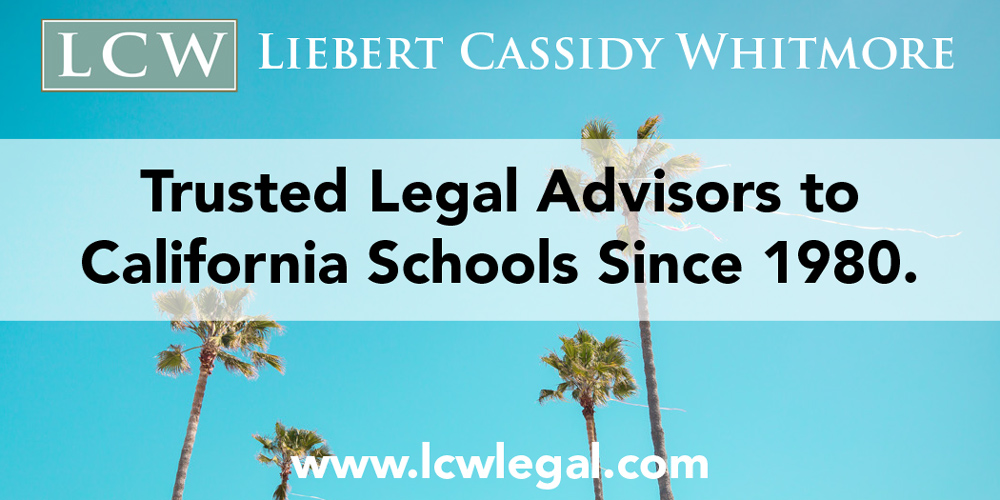Despite having the most students of any state and a booming budget, California ranks last in providing transportation to its public school students. While the home-to-school transportation program’s benefits of improved student safety, increased school attendance, and decreased traffic congestion and carbon footprint are well documented, the share of California public school students being bused to school has dropped drastically over the last 40 years from one in four to one in eight.
Addressing this failure is a top priority for CSBA in 2022. The association is sponsoring new legislation to reverse the long-term erosion of funding for vital home-to-school transportation services.


Priorities will be implemented in 2023
At its March 2022 meeting, the CSBA Board of Directors approved four new strategic priorities.
- Priority 1: Provide member boards quality education research, robust policy tools and support to equip them to create the equitable conditions for every student to succeed.
- Priority 2: Develop pertinent and interactive training that creates knowledgeable, engaged and effective local board members.
- Priority 3: Increase the number of governing board members CSBA mobilizes to leverage our collective voice and to advocate for public education at the local, state and federal levels.
- Priority 4: Pursue excellence in association leadership as the Board of Directors strives to achieve the guiding principles found in CSBA’s Vision, Mission and Equity statements.
“As CSBA Directors, one of our primary responsibilities is to establish priorities that are aligned with the association’s values and designed to advance its mission,” said CSBA President Dr. Susan Heredia. “Our new strategic priorities reinforce CSBA’s commitment to innovative research, unparalleled education policy and governance training services; aggressive legislative and legal advocacy; and strong, consistent leadership for California’s TK-12 public schools.”

Troy Flint | tflint@csba.org
Editorial Director:
Kimberly Sellery | ksellery@csba.org
Marketing Director:
Andy Rolleri | arolleri@csba.org
Staff Writers and Contributors:
Alisha Kirby | akirby@csba.org
Heather Kemp | hkemp@csba.org
Teresa Machado | tmachado@csba.org
Kristin Lindgren | klindgren@csba.org
Emily Baker | ebaker@csba.org
Graphic Design & Branding Director:
Kerry Macklin | kmacklin@csba.org
Senior Graphic Designer:
Amanda Moen | amoen@csba.org
Dr. Susan Heredia | Natomas USD
President-elect:
Susan Markarian | Pacific Union ESD
Vice President:
Albert Gonzalez | Santa Clara USD
Immediate Past President:
Xilonin Cruz-Gonzalez | Azusa USD
CEO & Executive Director:
Vernon M. Billy
California School News (ISSN 1091-1715) is published 11 times per year by the California School Boards Association, Inc., 3251 Beacon Blvd., West Sacramento, CA 95691. 916-371-4691. $4 of CSBA annual membership dues is for the subscription to California School News. The subscription rate for each CSBA nonmember is $35. Periodicals postage paid at West Sacramento, CA and at additional mailing office. POSTMASTER: Send address changes to California School News, 3251 Beacon Blvd., West Sacramento, CA 95691.
News and feature items submitted for publication are edited for style and space as necessary.


Unlike other states, California doesn’t provide busing for all students. Most school districts and county offices of education offer busing strictly for students in special education programs and, even for these students, existing state funding is far less than what is required to pay for a busing program. Overall, only about one in 10 California students takes a bus to school. On average, California reimburses schools for less than 30 percent of home-to-school transportation costs, with dozens of districts receiving less than 10 cents on the dollar.

A vision years in the making came to fruition when school trustees and superintendents from across California traveled to Washington, D.C. as part of Coast2Coast, the inaugural CSBA-Association of California School Administrators (ACSA) federal advocacy trip. The three-day event offered education leaders a chance to communicate directly with their representatives in the nation’s capital and also learn from some of the country’s top policymakers and political experts.

Senate Health Committee Chair Richard Pan (D-Sacramento) announced on April 14 that he had pulled a bill that would have mandated vaccines for all children to attend school or child care while granting no personal belief exemption. Pan said the focus right now needs to be on making sure families can access the vaccine for their children.
A few hours later, the California Department of Public Health announced it would not begin the process of adding the COVID-19 vaccine to the list of mandated childhood vaccines because it has not been approved by the federal Food and Drug Administration. CDPH had intended to require it for the upcoming 2022–23 school year, but now that won’t happen until at least July 1, 2023. The department said in a statement that once the COVID vaccines for children receive full approval, it would consider the recommendations of a Centers for Disease Control and Prevention vaccine advisory committee, the American Academy of Pediatrics and American Academy of Family Physicians before issuing a school vaccine requirement.

Nina Yuen Loc, director of behavioral health in Los Angeles’ Chinatown Service Center, recounted two stories illustrating how family support can be crucial to those seeking help. The first involved a 17-year-old girl who requested her mom allow her to seek therapy. After her mom dismissed the idea, the girl went to the school counselor, who matched her with the Chinatown Service Center, as they would best understand an AAPI family’s perspective on mental health. Through the assessment process it was discovered that this girl had active suicidal thoughts and a plan. The therapist was concerned for the girl’s safety.

A new research and policy brief, “Advancing Universal Transitional Kindergarten — Questions for School Board Members,” a corresponding quick facts sheet, and a pair of case studies focused on expanding prekindergarten access in San Diego County and the growth of early learning in Palermo Union School District are all available as references for insight and inspiration on looming changes statewide.

Of CSBA’s hundreds of member school districts and thousands of individual school board trustees, many have considered the issue of staff wellness over the past couple of years.
Accordingly, governance teams have turned more attention to providing opportunities for valued staff members to monitor and maintain a healthy state of wellness. Importantly, having employees demonstrate commitment to good mental and physical health practices in turn has measurable positive impacts on students’ health and resulting academic achievement.
More than 20 ACEs Aware grantees were awarded funding to develop practice papers highlighting promising strategies and lessons learned, as well as new research around ACE screening and trauma-informed systems of care. The practice papers cover a broad range of topics, some of which apply to local educational agencies and the organizations they partner with.

Restorative justice practices can help educators increase equity and are most impactful when implemented as part of schoolwide efforts to align with the California Multi-Tiered System of Support (MTSS) Framework, explained Timea Farkas, interim research director of California MTSS at the Center.

Determining teacher supply in California is essential for policymakers as they analyze how current statutes and policies impact teacher recruitment, teaching incentives and teacher preparation. “Teacher Supply in California, 2020–21: A Report to the Legislature” provides data collected by the CTC and addresses several questions regarding the supply of new teachers available for classrooms. The report covers the number of teachers who received credentials, certificates, permits and waivers to teach in California public schools.


Stories of stolen and destroyed soap dispensers, mirrors, sinks and toilets; a “door knocking challenge” in which kids would loudly kick or knock on a door in time with the two drumbeats in a popular Kesha song; youth firing soluble gel beads from airsoft guns at pedestrians and vehicles; investigations launched by a group of bipartisan attorneys general into TikTok and the effect it has on the physical and mental health of the nation’s children and more were shared widely by parents, school and district leaders, police and legislators.

Most of the 58 county offices of education are funded similarly to school districts using the Local Control Funding Formula, supported first with local property tax revenue, with the remainder covered by the state’s Proposition 98 General Fund. Certain COEs collect enough property tax revenue in a given year to cover their entire LCFF allotment and often provide funds beyond the LCFF allotment. School districts in these circumstances are allowed to retain and spend these “excess property taxes” for general fund use; these excess property tax school districts are more commonly referred to as “basic aid” school districts. Such is not the case for COEs.
MIG Course 5: Community Relations & Advocacy/Governance Integration
MIG Course 5: Community Relations & Advocacy/Governance Integration
MIG Course 4: Human Resources/Collective Bargaining
MIG Course 4: Human Resources/ Collective Bargaining
MIG Course 5: Community Relations & Advocacy/Governance Integration
The Brown Act
MIG Course 5: Community Relations & Advocacy/Governance Integration
Governance with an Equity Lens
2022 Leadership Institute | Los Angeles










